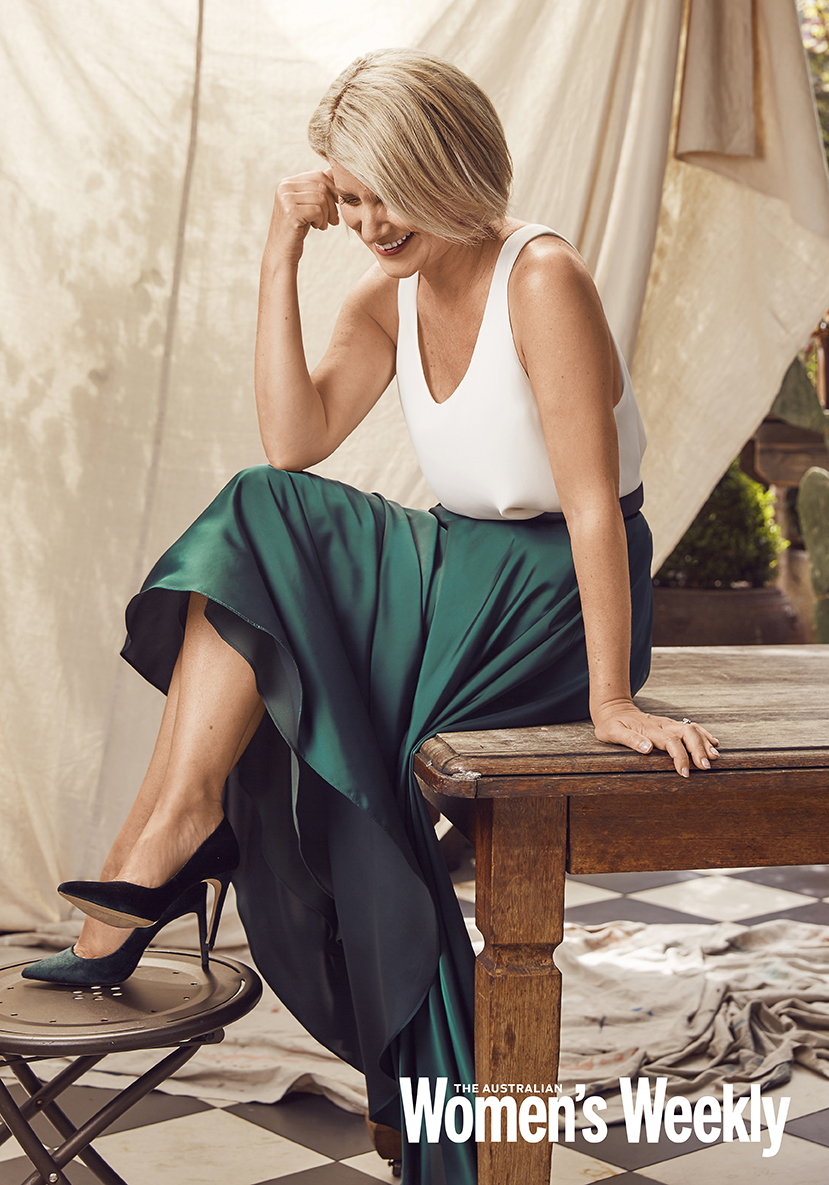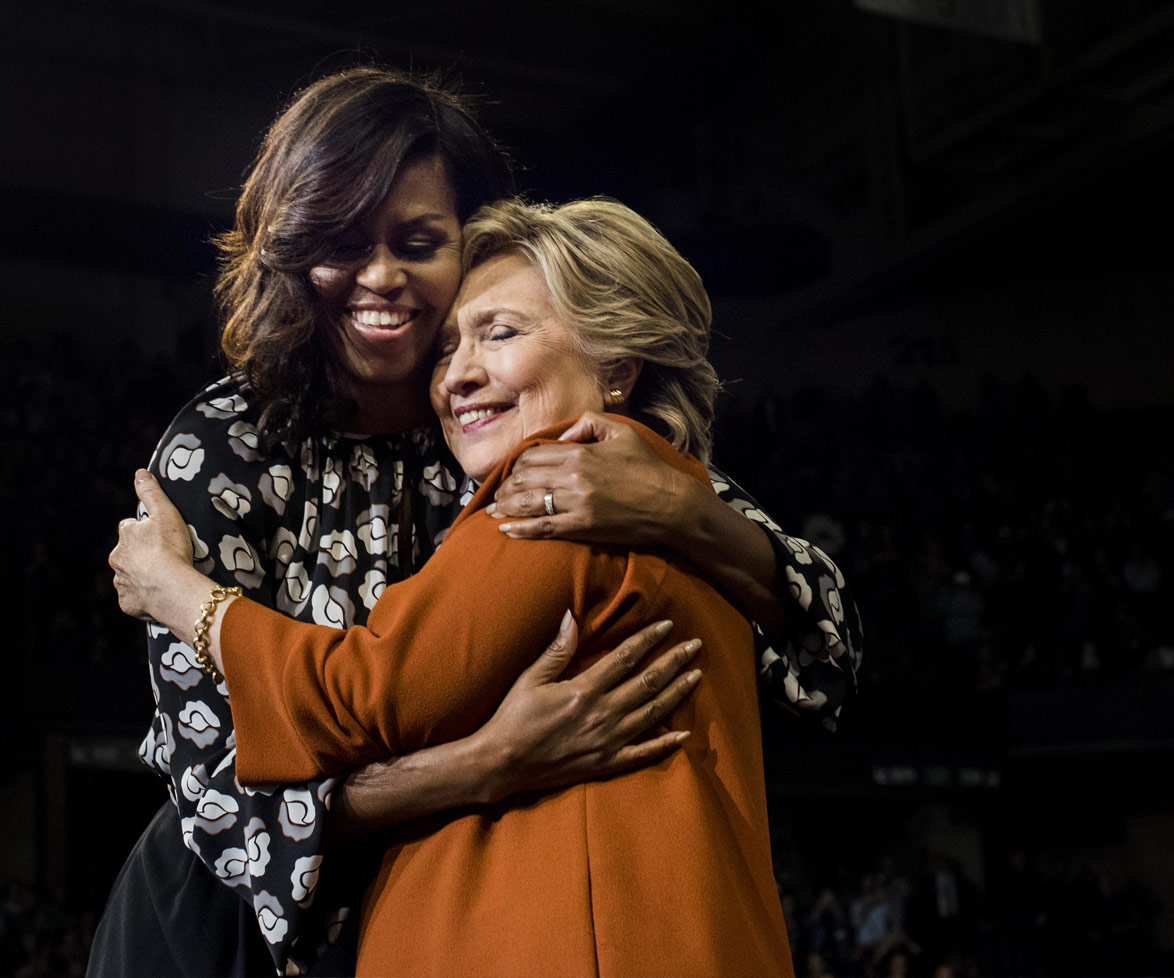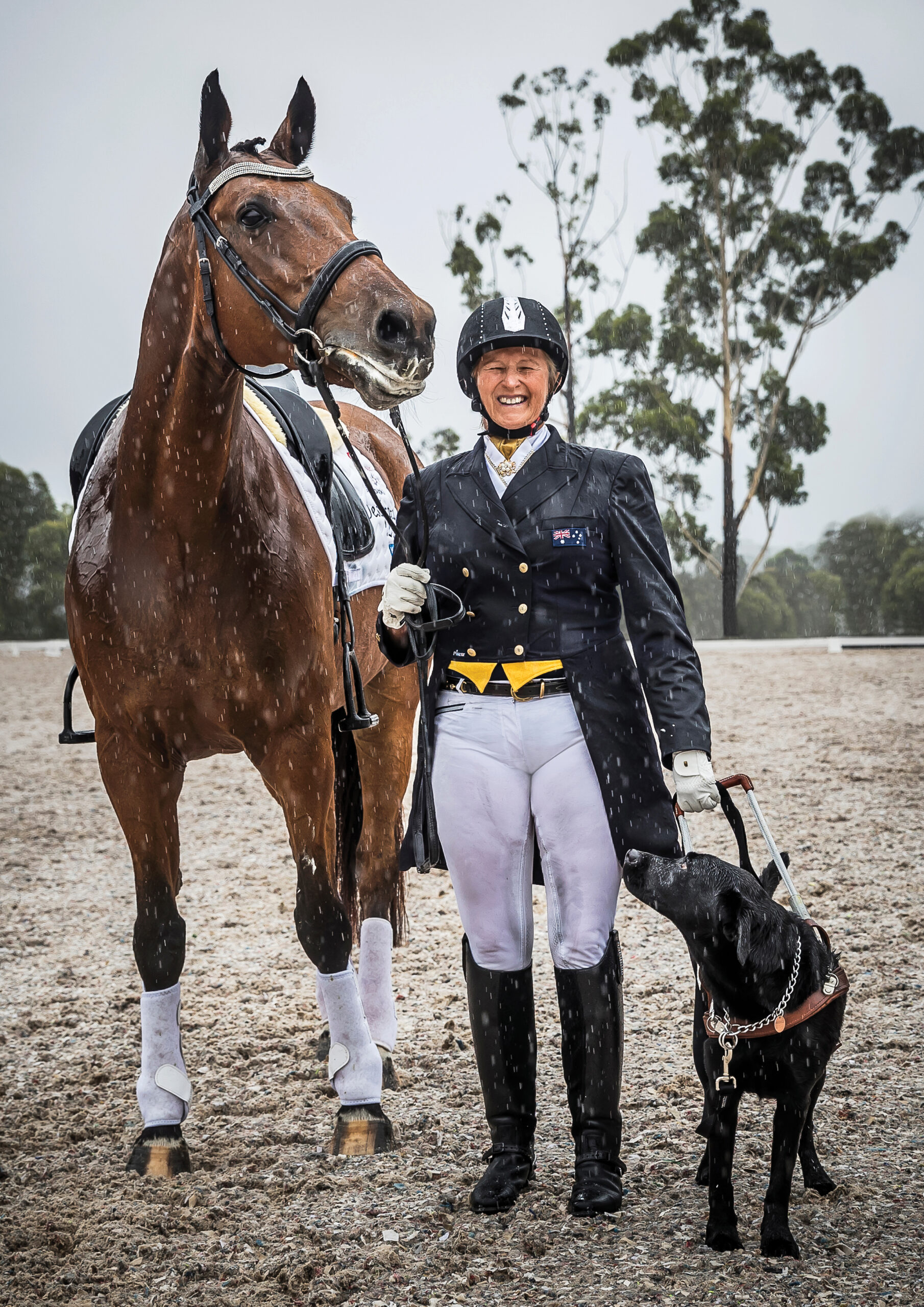Natasha Stott Despoja marched in her very first women’s rally while she was still a schoolgirl, and she has been championing equality ever since. “I’m a creature of the women’s movement,” she says, still with that wide smile and earnest enthusiasm.
“I was attending rallies on the steps of Parliament House while I was in primary school.”
This is no surprise because Australia’s former Ambassador for Women and current chair of the family violence organisation Our Watch comes from a long line of fabulously feisty women.
Her grandmother, Jessica Stott (Swinfield), was a pillar of wisdom and strength. She raised five children in tough times (including the Great Depression) and steered the family through the difficult years after her husband returned traumatised from the famous light horse battle of Beersheba in WWI. “Her life wasn’t easy,” says Natasha, now 48.
“Mum has always described my late grandmother as a feminist.”
Jessica raised another gutsy girl in Natasha’s mother, Shirley. She was the first in her family to study at university, the first female journalist in The Adelaide Advertiser‘s newsroom, the first editor of its arts pages and, at 82, remains an influential columnist in the Festival City.
Shirley raised Natasha and her brother, Luke, as a single parent after separating from their father when they were young.
“Times weren’t easy when I was a child,” Natasha explains. “We didn’t have a lot of money but we had a lot of culture. It made me cringe at the time: that I gave books as presents
and our house was full of books. I thought, normal people don’t live like this, but now I understand the role that played in shaping me. My mother was a strong female role model and I want to be that for my daughter.”
Natasha’s 10-year-old daughter, Cordelia, texts her mid-interview. We’ve stolen her mother for a whole day in the school holidays. Natasha shoots back a photo of herself, hair tousled by The Weekly’s stylist armed with a leaf blower. Cordelia thinks this is hilarious. She doesn’t usually find her mother so funny.
Natasha’s kids (and her husband, Ian Smith) call her Captain Sensible. “When I go away on a trip, Ian will say to Cordelia, ‘What time is it?’ And she’ll say, ‘Party time!'” Luckily, Natasha can count on her 13-year-old son, Conrad, who is a chip off the old block, “to make sure order is maintained and rules are followed”.
As a child, Natasha says she was “responsible, capable and a typical girlie swot. When Ian and I compare our school days, he jokes about smoking behind the shed or playing truant. I couldn’t imagine doing those things. I had imbued in me a belief that education was the most powerful, important tool – especially for girls.”
In high school she was president of the Student Representative Council and helped instigate a State Council of Students in South Australia. At university she studied Arts and was elected President of the University of Adelaide’s Students Association.
The introduction of tertiary fees was the issue of the day and the only political party opposing them was the Australian Democrats, so Natasha got on board.
“I wasn’t even thinking about politics as a profession,” she admits, “but I was offered a job as a legislative adviser. Then people said, ‘Why don’t you stop talking about young people having access to power and try running for Parliament?’ So I did.” In 1996, she was off to Canberra, the youngest person ever elected to the Federal Parliament.
“I pinched myself every time I went to Parliament House with that flag the size of a double-decker bus. I walked in there, wearing my Doc Martens and thinking nothing of it – I love a sensible shoe and there are hundreds of kilometres of corridors in Parliament House – overwhelmed by what an extraordinary opportunity and privilege it was.”
“Then I looked around and thought, ‘Where are the women? Where are the young people?’ So it wasn’t all, ‘Wow, this is so exciting!’ It was also, ‘My goodness, I’m going to deal with some extraordinary situations here,’ and I did.”
At Natasha’s first official lunch the first question she was asked was, “did you go into politics to find a husband?” And instead of encouraging her “to forge pathways with other young senators, people kept trying to set me up with them,” she says. “I didn’t go there to find a boyfriend. I went there to change the world.”

“I looked around and thought, ‘Where are the women? Where are the young people?”
Natasha was “subject to ridiculous stereotypes” and recalls “the ‘hair and costume comments’ as Hillary Clinton calls them”. She was also disappointed to find that women in the Parliament were “pitted against each other and discouraged from working together”.
She remembers former Labor Senator Rosemary Crowley valiantly trying to establish a cross-party women’s group. “She held a lunch and I remember thinking, ‘This is it! This is going to be the sisterhood network I’ve been waiting for!’ Rosemary stood up in her wonderful way and said, ‘Welcome sisters!’ And I was like, ‘Yes!’ And the Liberal Party Senator sitting beside me choked on her roll and whispered, ‘She is not my sister!’ But we all had more in common than we had separating us.
“Towards the end of my time there, things began to change. One of the highlights was in 2006 when women senators from all four parties worked together on the RU486 legislation,” to remove restrictions that had been placed on use of the pregnancy termination drug.
In time, Natasha became a highly-respected player in the political arena with a reputation for tackling tough issues. “When the Tampa affair happened in 2001, I went into Parliament on the Monday and initiated an urgency debate on John Howard’s decision to prevent asylum seekers from landing on Australian territory.”
That move attracted unwanted attention from beyond Parliament. “There were death threats,” she admits. “I woke up to a bullet on my doorstep. Some of these things I’ve never talked about because, at the time, the Federal Police counselled me to keep quiet. There was a long time, in one State, when I couldn’t travel without security. Kim Beazley, Bob Brown, myself and others received detonators in the mail.”
None of this swayed Natasha’s commitment. She developed a passion for “the nitty-gritty of law making and policy work”. She introduced the first paid parental leave legislation and co-authored the first marriage equality bill. She cried as she watched Penny Wong, with whom she’d worked in campus politics, celebrate the eventual passage of marriage equality legislation through the Senate in November last year.
Both Natasha’s children were born while she was a senator and she amended the parliamentary standing orders to allow for breastfeeding in the Senate chamber. “There was no childcare in the Parliament and no understanding,” she remembers. “People would say, ‘how can she be taking her job seriously if she has a child there?'”
Natasha is impressed by NZ PM Jacinda Ardern’s matter-of-fact announcement of her pregnancy and New Zealand’s reaction to it: “Isn’t she wonderful! … I think Australians were more shocked than New Zealanders. New Zealanders just started knitting. Remember the reaction when Julia Gillard was pictured knitting in The Weekly! We couldn’t cope with a multi-faceted idea of what constitutes a female politician. I hope Prime Minister Ardern will set a standard that will creep across the Tasman.”
Natasha left Parliament in 2008, the longest serving Democrat senator. Since then, she’s chaired the mental health group, Beyond Blue, been a member of the World Bank Gender Advisory Council and the UN High Level Working Group on the Health and Human Rights of Women, Children and Adolescents. She’s the founding chairperson of Our Watch and, from 2013 to 2016, was Australia’s Ambassador for Women and Girls.

“I didn’t go there to find a boyfriend. I went there to change the world.”
When Julie Bishop phoned and asked her to take that role, Natasha was taken by surprise because “as she and others have pointed out, I’m not exactly Liberal Party stock. But that conveyed to me how serious she was about an international development agenda that put gender equality at its core … Under Julie Bishop, 80 per cent of all our international development work has to effectively address gender equality. Very few countries have a target of 80 per cent. It’s little known but it’s amazing.”
These roles have not been all cutting ribbons and shaking hands – far from it. “I’ve been shaken by some of the people I’ve met and the things I’ve seen,” she admits. “In Papua New Guinea, more than 90 per cent of women have experienced violence, really horrendous, graphic violence.
“Dealing with things like that and with the abject poverty and abuse of children who have been trafficked; being confronted with all those issues, plus coming home and working in a foundation to prevent family violence and sexual assault – I think, at the end of my term as ambassador, I was finding it quite traumatic, and I wasn’t working on the front line … I worry terribly about the number of women and children subject to violence in this country. It’s a national emergency and doesn’t get the attention or the funding it deserves. On the flip side, I’ve seen the difference people, governments and philanthropists can make, that inspires me to keep going.”
Natasha is mindful of how fortunate she is to be able to leave the trauma of family violence behind at the end of the day. She likes to decompress with the game Beat the Intro (she and Ian share a passion for ’80s pop music) or a walk on the beach near their Adelaide home.
“The beach is our therapy,” she says. “Time together is precious for every family and it’s elusive. We enjoy each other’s company, so we walk together on the beach and dog walk.” The family adopted a dog two years ago, a German Wirehaired Pointer which Ian, a former Liberal Party adviser, suggested they call Thatcher.
“Needless to say I vetoed that,” Natasha laughs. “So we asked Conrad what we should call him. My son is a great admirer of Angela Merkel, so we called our dog Merkel. He meant it as an homage.”
And does Natasha still step out on these walks in Doc Martens? “Yes,” she chuckles, “and we’ve just bought Cordelia’s first pair – they’re silver! I still love a sensible shoe.”

